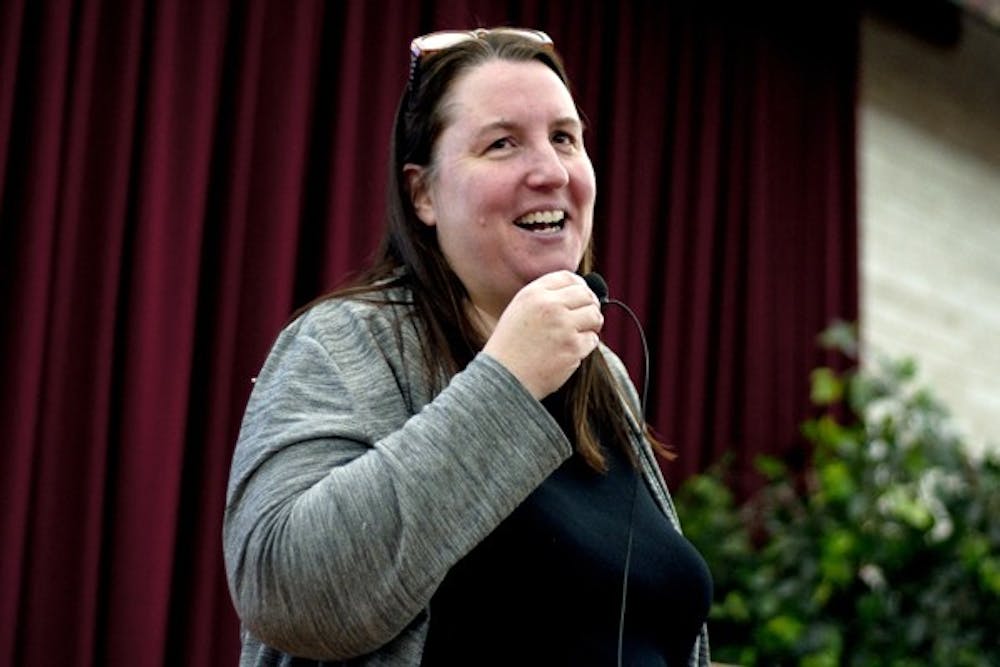Presenter says comics portray women 'as objects of desire and not desirable objects'

English Language and Literature Faculty Joseph Sommers described himself as near tears when the 21st century comic book heroism conference came to its end.
Twenty-one students from HON 321: Seminar gave oral presentations over eight different sessions in the all-day literary conference held in the Bovee University Center Rotunda, sponsored by the English Language department and the Honors Program.
Gwen Athene Tarbox, associate professor of English from Western Michigan University, gave the headlining address, "Tights Were Harmed in the Creation of this Comic: Surveying Female Heroics in Contemporary Young Adult Graphic Novels."
Two hundred and sixty people attended the event in total throughout the day.
"In terms of argument, in terms of composition, in terms of presentation, almost all of the papers were gobstopping," Sommers said. "I've paid over $100 to see presentations by academic professionals, and these papers were equally as good. This is beyond what you would expect from graduate students."
Tarbox's presentation focused on the presentation of women in modern young adult novels, particularly young adult graphic novels. Although many of the young adult graphics novels in this area were focused toward pre-teen girls, she said mainstream comics have heavily impacted the visualization of the female in young adult graphic novels.
"Very often, women are portrayed as objects of desire and not desirable objects," Tarbox said, noting that female protagonist in young adult comic books often judge others and themselves in the context of societies expectations.
Tarbox also highlighted what she deemed a positive trait in modern young adult comics, a shift from the focus of individual heroism to collective heroism. Also, instead of stressing individual strength has heroic, modern young adult comics, often portray empathy as heroic.
"In order to be heroic, one has to understand empathy," Tarbox said. "The most heroic act one can accomplish is of understanding someone."
Within the academic community, Tarbox said the resilient individualist heroine protagonist is starting to be criticized for what it could possibly represent.
"They want characters to be resilient so adults can ignore the responsiblity for creating the messed up world children grew up in," Tarbox said.
Pontiac senior Sara Srygley attended Tarbox's lecture because of her interest in the topics presented.
"I just really like comic books and graphic novels," Srygley said. "And I'm a huge feminist, so it worked out."
Holland senior Rachel Weeks gave a presentation earlier in the conference on the power of language through art and visual representation of characters in Grant Morrison's works.
"This was just a really great opportunity in showcasing what the literary program and comic books are all about," Weeks said. "It was a really great learning experience."
Sommers said comic books are an important part of the academic conversation.
"When we get past just the cultural touchstones, these comics and graphic novels tell us things about ourselves," Sommers said. "Be they hyperbolization or distillations of our human condition, the superhero is both everything we strive to be and the perfect exemplar of who we already are."
Sommers said the conference and his class were such a success because of how attractive comic books are toward both the faculty and the students.
"Any time you can bring a student and a professor's mutual love into an academic setting, you're constructing an opportunity for a magical teaching moment," Sommers said.



